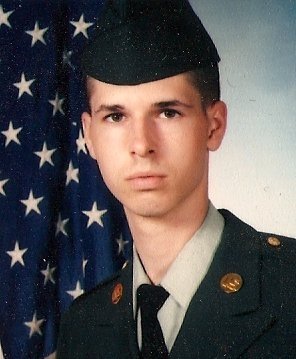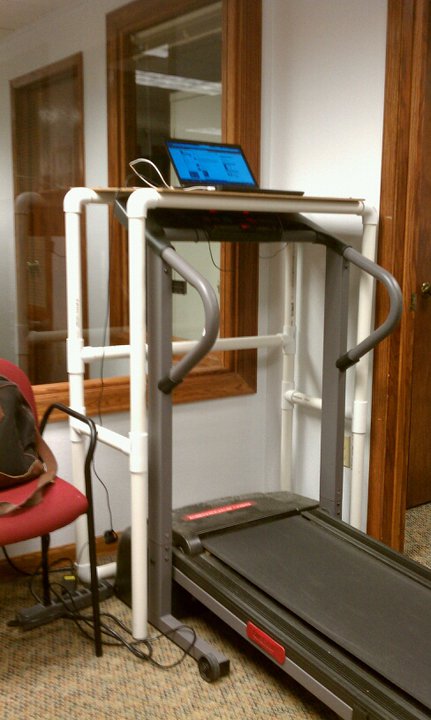High Fructose Corn Syrup
Building a strong town is ultimately about more than just the finance of our places. While that is important, to endure, a place needs to also nurture our bodies and our souls. The American pattern of development is not only failing us financially, it is failing to create places where people thrive. If we are to be a great nation, that needs to change.
Next week we are going to be holding our annual fundraiser. This is a really critical time for us and the Strong Towns movement as we attempt to transition from this very modest operation to something that can meet the overwhelming demand for a Strong Towns approach that we find everywhere we go. Please make sure and visit us next week as we detail our plans for the future and what you can do to help us build an America of strong towns.
I turned 39 this past May, which means next year I will turn 40. This probably would not be a big deal for me if I was not living with two human chronometers. My wife -- three months my younger -- ages at the same rate as I do (although much more elegantly) and so, as we've grown older together, it has been hardly perceptible to me. On the other hand, when my two daughters were born I began marking time in an entirely new way. I remember holding their little hands when they were just minutes old. The changes I've witnessed in the intervening eight and five years just do not seem possible and have given a new urgency to the measure of time.
As with many Americans entering "middle age", I've begun to come to grips with the fact that my body is starting to respond in ways I had not anticipated. There has been the steady weight gain over the years along with the generally slower recovery to physical stress than I have been used to. Nothing earth shattering in that; it happens to all of us.
What is interesting to me today, however, is how difficult it is for me to live a "healthy" lifestyle. It is not just food -- although I've developed some bad habits in that area that are difficult to overcome -- but basic physical activity. If I want to be healthy, it is a commitment in time, focus and desire. Does it have to be this way?
I grew up on a small farm just outside of Brainerd, MN. We weren't farmers, per se, but we did survive off of the farm for many years when my dad was unable to work and then while my parents went to college. Living on the farm, we were very active, not just with chores but with the way we played. And we ate really well, although as a kid I didn't appreciate it. I was always covetous of my friends who had Doritos and Twinkies in their lunch box.
So when I reached middle school where there was a "snack" bar to complement the regular lunch, all of my out-of-the-home sustenance came in the form of donuts, chips, pizza and assorted carbonated beverages. This is where the bad habits originated for me, as they do for many kids, I'm sure. Give me a choice between a slice of pizza and some nachos or a salad and some fruit and I'd always choose the former. I wasn't alone.
 My Basic Training photo, June 1990. I started Basic at a lean 123 pounds but finished at 155.This wasn't a big deal for me, however. I had a thin build and really high metabolism. After spending four months "bulking up" and training hard to enter the Army and go to Basic Training the summer between my Junior and Senior year of high school, I was 6 feet tall and weighed in at 123 pounds. That is not a typo. I ate five meals a day -- including a second lunch prepared by my girlfriend at the time, who is now my wife -- and still managed to make the minimum weight cutoff by only three pounds.
My Basic Training photo, June 1990. I started Basic at a lean 123 pounds but finished at 155.This wasn't a big deal for me, however. I had a thin build and really high metabolism. After spending four months "bulking up" and training hard to enter the Army and go to Basic Training the summer between my Junior and Senior year of high school, I was 6 feet tall and weighed in at 123 pounds. That is not a typo. I ate five meals a day -- including a second lunch prepared by my girlfriend at the time, who is now my wife -- and still managed to make the minimum weight cutoff by only three pounds.
The Army was good for me in terms of weight and physical activity. All the running and physical training combined with three meals a day combined to increase my weight to 155. It was quite a shock when I went back to high school and, after the following summer after a second stint doing Army training, college. I could eat whatever I want, and I did.
At this point in my life I was still pretty physically active as part of my daily routine. Yes, I would jog regularly and do a fair amount of pushups and situps so I wouldn't embarrass myself during our annual Army fitness test, but I lived a mile from the University of Minnesota campus and walked there at least once, often more times, each day. When I moved further away my Senior year, I often rode my bike. While I had to sit a lot during class and while studying, the miles I put on each day going from place to place seemed to make up for the steady diet of Taco Bell, McDonalds and frozen pizza.
Actually, I wasn't going to share this but I might as well. I was still really skinny at the time and I remember my favorite snack being microwave Movie Theater Butter popcorn -- which had really just come out in our area -- with a Hershey's bar melted over the top. I would wash that down as a snack with a liter of Mountain Dew. Yes, that makes me a little sick today just to think about it. That had to be something like 3,000+ calories in one snack. Ouch.
When I graduated from college and started working as an Engineer in Training, I spent the first year in the field doing inspections and, while I was in the office during the second year and beyond, I spent that next summer building a house. I was married at this point and, while my wife is and was much more health conscious than I was, I managed to still get my share of bad food. Here's the problem, though: by this point I was entirely in the office, sitting at my desk in my cubical for hours each day. I would go home -- a ten mile drive -- where I would turn on the TV and chill out in my new home. I was working really hard, but the only exercise I was getting was the occasional mowing of the yard or blowing out the snow from the driveway.
By my fourth year as an engineer, my weight had reached 185. My brothers actually teased me for having jeans with a 32" waist. I swore that, If I ever reached 190, I would starve myself until I got back to an acceptable weight.
It was then that something really interesting happened. I was selected to take part in a foreign exchange program that sent me to Italy for six weeks. I've written before about how this experienced changed my life in many ways, but in the context of my weight, it was equally as remarkable. While I kept my American eating habits as much as I could -- I ate a sub and chips each day for lunch and a pizza with french fries (I'm not joking) every evening for dinner -- and probably ate more than I had in years, I lost 20 pounds on the trip. I came back weighing 165 and looking really, really thin again.
What happened in Italy? I think we'd like to say it was a "Mediterranean" diet, although I still enjoyed the daily candy bar and, as I said, still ate like an American junk food addict. The only substantive change was that I walked everywhere. Every day I walked miles. I never "worked out" in the sense that I went out and exercised, but my car, garage door opener, couch and TV were replaced by an entirely different environment. Six weeks in this new environment and I was 20 pounds leaner.
Of course, when I got back to the USA I went back to the cubical and then to graduate school and gained all the weight back quickly. In fact I remember two visits to the doctor, one in November of 2000 and the second a year later. The doctor looked at me and said, "Do you know you gained ten pounds since your last visit?" I did not. "You have a thin frame and it's okay, but don't let it happen again."
It was these unhealthy habits -- a poor diet and no real exercise as part of my daily routine -- that I took into parenthood. What little energy I might have had for physical activity was sucked right out of me by these two infant girls born a couple years apart. We did walks with the stroller and took the dogs for some walks, but most of our free time was spent intensely with the kids or trying to find that extra minute of rest. I was soon flirting with 200 pounds.
Then the whole age thing started to kick in and, in conjunction, I developed a thyroid disorder. Unfortunately with the latter, by this point I had become so messed up in my diet that I couldn't really tell what was my body getting older, what was a lack of sleep, what was too much Mt. Dew and fast food and what was a lack of exercise. For me, hypothyroidism essentially made my body want to hibernate. I ate to stay awake and, as if preparing for a long winter nap, my body put a lot of that on as extra weight. It felt like I had no metabolism. I would be driving somewhere a couple hours away to give a speech and I would need to leave five hours early so I could stop for a nap along the way. Finally my wife felt it was no longer just bad diet and lack of exercise but potentially something else and made me go to the doctor. When I got the diagnosis two years ago, I was up to 220.
 My treadmill desk built out of PVC pipe at a total cost of $32.It took a while to get the hypothyroid medication right, but I started right away to try and lose that weight. Like all Americans in a similar position, that meant a change in diet and more exercise. I studied the situation and decided on two (what I considered) "major" changes. First, I would try and cut down on snacking between meals. Second, I would integrate regular exercise into my daily routine.
My treadmill desk built out of PVC pipe at a total cost of $32.It took a while to get the hypothyroid medication right, but I started right away to try and lose that weight. Like all Americans in a similar position, that meant a change in diet and more exercise. I studied the situation and decided on two (what I considered) "major" changes. First, I would try and cut down on snacking between meals. Second, I would integrate regular exercise into my daily routine.
Since my days are very committed to my work and my family, I built a treadmill desk so I could work off some calories in time I would normally be just sitting at my desk. I thought this was a genius idea -- I was turning sedentary time into modest exercise -- and found that it helped immediately. The problem is, as my time got stretched thin and when I found myself out of the office more and more, the entire thing fell apart. I would revert back to the lifestyle and habits I had grown up with, which meant eating poorly and eschewing exercise.
This past August, I was forced by our health insurance provider to visit the doctor for a physical. Everything was perfect -- cholesterol, blood pressure, thyroid -- except for my weight. I weighed 223.
My doctor is a good guy. He said not to worry about the BMI rating but the asked me what I thought a healthy weight for me would be. I said 185 and he agreed, but then he told me I couldn't make that goal without a major lifestyle change.
What does a 39 year old American with a wife and two kids, a job that requires him to sit and write, talk on the phone and travel long distances, with a history of -- and strong desire to eat -- bad, processed foods do to enact a "major lifestyle change"? What do I give up in order to find the time to exercise? What food choices do I make when I'm traveling and eating out? How do I make this permanent?
This all seemed overwhelming, but here's where I started: I gave up regular Mountain Dew. While I still drink a can or two of diet Dew daily, I'm not drinking anything with High Fructose Corn Syrup in it. In addition, I tried to cut out nearly everything that has High Fructose Corn Syrup in it. I don't want to get into the conspiracies surrounding HFCS, but I can report that the single change of cutting it out of my diet helped me drop from 223 down to 205 in about six weeks.
Here's the remarkable side effect, though: I used to drink Mt. Dew to keep my energy level up, but since I've quit, I have far more energy than I used to. And in addition to that, I actually am hungry -- no longer just eating to stay awake or because it is meal time -- and good food tastes a lot better.
This has all given me a new ability to approach things differently. While it takes extra effort, while I'm on the road for Strong Towns, I search out healthier food choices. Sometimes that is a Subway sandwich and sometimes it is a salad for dinner. And while it costs me a little time during my day, I'm also setting aside time to exercise.
In fact, I'm trying to de-Americanize my lifestyle where possible. That's also not easy to do because everything around me is set up for the opposite, but a few things I'm now trying include getting rid of the garage door opener, taking the stairs instead of the elevator and walking to destinations where I can, even if it is easier to drive. I've also found it fairly easy to give up the TV or to watch only when I am on the treadmill.
I'm very much a product of the American culture, from my eating habits to my lack of exercise. That is all reflected in my weight mirroring national obesity trends. I'm not a proponent of Federal government intervention to limit the size of cola drinks or to require labeling of the number of calories on food just as I'm not a proponent of corn subsidies so we can have more high fructose corn syrup. That having been said, it is only when I started rejected and fighting against the physical and cultural environment around me that I have begun to make progress.
Here's the interesting thing: Instead of feeling isolated from the culture, I've actually discovered a whole group of people doing the same thing. I see them walking the ditches where there is no sidewalk, parking a block away from Target and walking, taking the stairs when there is no line for the elevator. It is like a little club that I didn't even know existed until I discovered it accidentally. There's no secret handshake, just the occasional confirming nod when passing on the stairs. An odd counter culture.
I've been thinking about sharing all this for a while but wanted to wait until I permanently dropped below 200 pounds to do so. I'm now weighing in at 198, down 25 pounds since August and on my way to my goal of 185. For those of you reading this and shaking your head at my decades of folly, I ask that you be sympathetic to others stuck in the unhealthy American lifestyle.
Building a strong town is ultimately about more than just the finance of our places. While that is important, to endure, a place needs to also nurture our bodies and our souls. The American pattern of development is not only failing us financially, it is failing to create places where people thrive. If we are to be a great nation, that needs to change. We need to start building strong towns.
 If you would like more from Chuck Marohn, check out his new book, Thoughts on Building Strong Towns (Volume 1).
If you would like more from Chuck Marohn, check out his new book, Thoughts on Building Strong Towns (Volume 1).
You can also chat with Chuck and many others about implementing a Strong Towns approach in your community by joining the Strong Towns Network. The Strong Towns Network is a social platform for those working to make their community a strong town.
